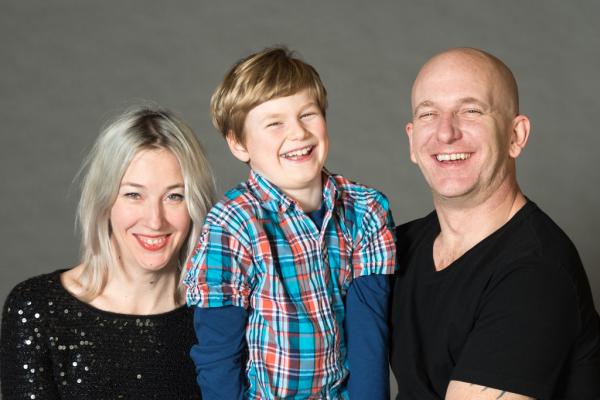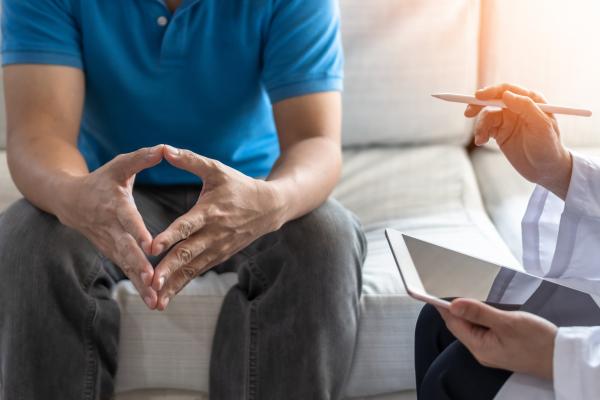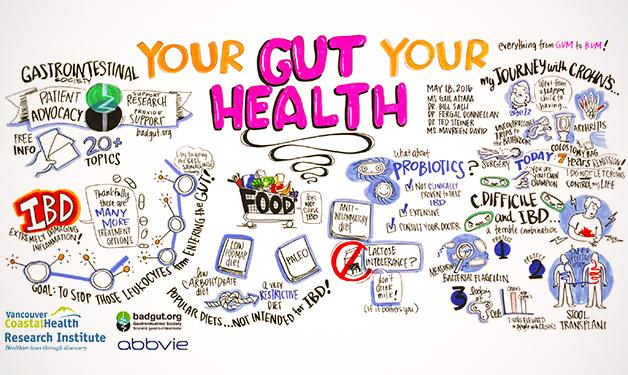
Your Gut Your Health event educates patients and public about common disease.
Inflammatory bowel disease (IBD) affects 1 in 150 Canadians. That’s one of the highest rates in the world. Along with serious health issues related to the digestive tract, people who have colitis, Crohn’s disease, or another IBD condition often also have symptoms that affect their joints, skin, and mental health.
Vancouver Coastal Health Research Institute (VCHRI) is dedicated to sharing health knowledge and discoveries that lead to better treatment options and clinical care for patients with chronic conditions, such as IBD. VCHRI chose to focus on the group of bowel diseases for its second annual public health talk. With support from the Gastrointestinal (GI) Society and AbbVie Canada, Your Gut Your Health offered an evening of evidence-based tips and the latest information in the hopes that those affected wouldn’t need to suffer in silence.
Over a hundred people attended the event in person and via webcast to get the latest information from VCHRI experts. Dr. Salh talked about the latest in clinical trials; Dr. Donnellan shared nutrition tips; and Dr. Steiner talked about the link between IBD and C. difficile. The event was moderated by Dr. James Gray. Vancouver photographer Mavreen David shared her story of growing up with Crohn’s disease and creating a rewarding life despite the obstacles.
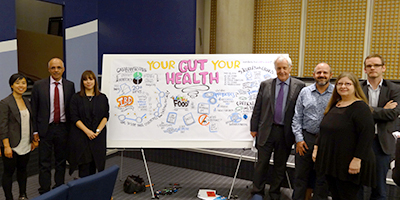
Top 5 things we learned at Your Gut Your Health
Learning about IBD can be a lot of fun!
The GI Society shared a great video that they created in collaboration with Dr. Mike Evans for his wildly successful YouTube channel. It set the tone for an evening where important information was presented in an entertaining and engaging way.
Clinical trials offer promising results.
The relationship between the cells and molecules that cause IBD is complex and there is no singular solution. However, new medications that target the different pathways have shown promising results and are coming out of clinical trials and into widespread use. If you’re interested in participating in a clinical trial, have a look at the VCHRI research study directory.
Focusing on overall nutrition is healthier than any fad diet.
There are many diets out there that promise to help alleviate the symptoms of IBD. However, none are backed by science. It’s much more important to focus on overall nutrition and eating a balanced diet. If you still want to try out a new diet, that’s okay, just be sure to talk to a dietitian before you start. Some diets can leave you with nutritional deficiencies or interact poorly with your medication.
C. difficile is linked to IBD, but it can be prevented.
People with IBD are especially vulnerable to C. difficile, a nasty infection that can be hard to treat that can follow a round of antibiotics. One way to help prevent C. difficile (whether you have IBD or not) is to use antibiotics only when absolutely necessary, and not for “just in case” situations like a sore throat that may or may not be strep.
Taking charge of your health will bring benefits.
Mavreen David shared her story of growing up with Crohn’s disease. Faced with severe symptoms since childhood, she has now been in remission for seven years. She credits focusing on her health, surrounding herself with a strong personal and health support system, and having a healthy lifestyle – good nutrition, lots of sleep, lowering stress, etc. – as playing a big part in her remission.
While the speakers talked, Yolanda Liman of Drawing it Out was on hand to record their words in the stunning art piece.
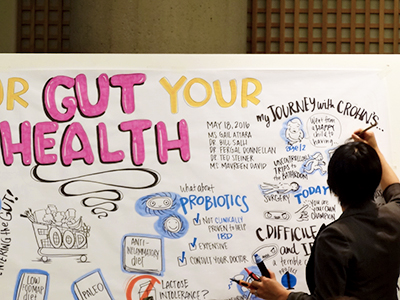
Liman was amazed to discover how important the gut is to wellbeing. “A doctor at the event told me it behaves almost like its own brain,” she says. “Sayings like ‘I have a gut feeling’ or ‘my gut was telling me...’ now have new meaning and it made me think about the physical reality of the mind-body connection. Also, Mavreen's story really touched my heart to think that when things go wrong with your gut, how terribly it can affect your whole life.”
Meanwhile, registered dietitian Gordon Ly live-tweeted the event. He accompanied a friend who has IBD to the event and soon found himself fascinated by the subject. “I appreciated the presenters speaking from a place of scientific evidence, and promoting evidenced-based nutrition care,” says Ly. “I really enjoyed attending this event – both from the perspective as a healthcare professional, but also as a member of the general public. I don't believe there is enough awareness about the incidence and severity of IBD, which for most people is a silent and often debilitating chronic disease.”
Can food cause IBD? No. Can food cure IBD? No. Foods can be triggers and help with symptoms but that's it! #YGYH2016
— Gordon, RD (@goodfoodgord) May 19, 2016
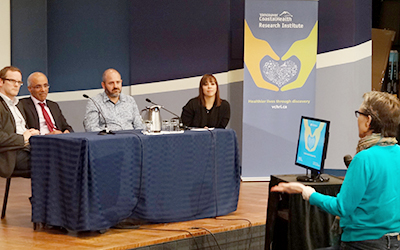
You can check out #YGYH2016 on Twitter to get caught up on all of the tweets from the evening, or watch the video below to see the whole event, including slides.
